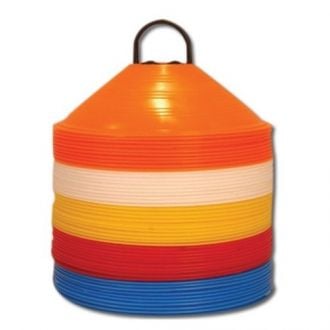8 Tips for Coaching Your Own Children
Children love to play and participate in sports — and they love spending quality time with their parents. By teaching your children how to play football, you can embrace both of these activities for unforgettable bonding experiences.
For young children, the priority must be fun. If your football coaching sessions aren’t fun, your children will quickly lose interest — maybe for good. Only children who fully enjoy the experience will develop the skills required to become good players.
Thankfully, teaching football effectively and having fun aren’t mutually exclusive. Here are a few ways you can inject the element of fun into your family football coaching sessions.
1. Sit Down and Talk First
Before you kick a ball together, sit down as a family and talk about sports. Why are they fun? What sports excite your children? This is also a good time to watch some sports on the TV. It doesn’t have to be a Premier League match, however. Find some highlights from a school match on YouTube, as this should be easily relatable for your child.
This is all about setting a few objectives and demonstrating that becoming proficient in the game actually makes it more fun.
2. Don’t Give Them Special Treatment
If your child is part of a team you coach, it’s important to treat them like all your other players. This is essential for team morale, but also for the morale and confidence of your child. Your child will want to be part of the team, and not just the coach’s son or daughter. Every reward and concession should be earned on equal terms.
3. Don’t Over-Compensate
Some coaches have a tendency to be a little harder on their children than they are with other players in the team. This is because they want to make the point that favouritism and nepotism play no part in their setup. When your child pulls on their training jersey or strip, treat them like any other player. While special treatment can be damaging to everyone involved, over-compensating can be equally harmful.
4. Don’t Lose Your Temper
Getting angry with your own child is easier than it is with other children. But if you reserve the bulk of your anger for your child, he or she will feel singled out from the group. Over time, this can have devastating effects on your child’s confidence and enjoyment of the game. While you might be naturally more inclined to be vociferous in the coaching of your own child, fight the urge at all times.
5. Don’t Make Football a Life or Death Issue
Bill Shankly once famously mused that football is “more important” than life and death. While opinions differ as to the Liverpool legend’s true beliefs on this issue, this quote is one of the most famous in the game. But in reality, football should never be approached with this mindset — particularly by children.
Young players can only perfect their skills if they practice regularly, and they can only practice regularly if the game is fun and rewarding. The moment football coaching feels like a chore or something that causes stress and anxiety is the moment children stop learning. That’s why it’s important to ensure your child has other interests and plays other sports. Keep things relatively light-hearted and fun until your child reaches adolescence.
6. Have Plenty of One-to-Ones
Regular communication with your child is essential, as it’s the only way to be sure your coaching is still effective and enjoyable. Schedule regular conversations to explore how your child views the game, their progress and their hopes for the future.
There may be certain aspects of coaching that cause stress or anxiety. There may even be certain things about your coaching sessions that make your child profoundly unhappy. Listen to what your child has to say, and adjust your approach accordingly.
7. Take a Step Back Occasionally
It’s easy to become blinkered and set in your ways when you’re coaching your own child, day in, day out. Every so often, let another coach take the reins. You’ll get useful insights and feedback on how to improve as a coach. And your child may learn new ways of playing the game. There may also be elements of other coaches’ styles that deliver better results than your own. Getting someone else’s perspective on football coaching, particularly when your own child is involved, is always a positive move.
8. Always Be Ready for Spur of the Moment Football Coaching Sessions
One of the main advantages of coaching your own children is convenience. Every time you’re both at a loose end is an opportunity to work on the fundamentals of the game. Whether you set up a makeshift training pitch in your garden with marker cones or head to the local park, you can make every spare minute together count.
But if you’re not holding a full training session with the team, you’ll need a few items of football coaching equipment of your own. Keep them in your garage or shed so they’re easily accessible when the opportunity to coach arises. As well as cones and markers, make sure you have a robust garden goal at home. Portable, lightweight and easy to assemble, a garden goal is perfect for those last-minute coaching sessions at home. And of course, you’ll need the right football for your child’s age group.
Coaching your own child is not without its challenges. But with the right approach, it can be a productive and enjoyable experience — for both of you.




